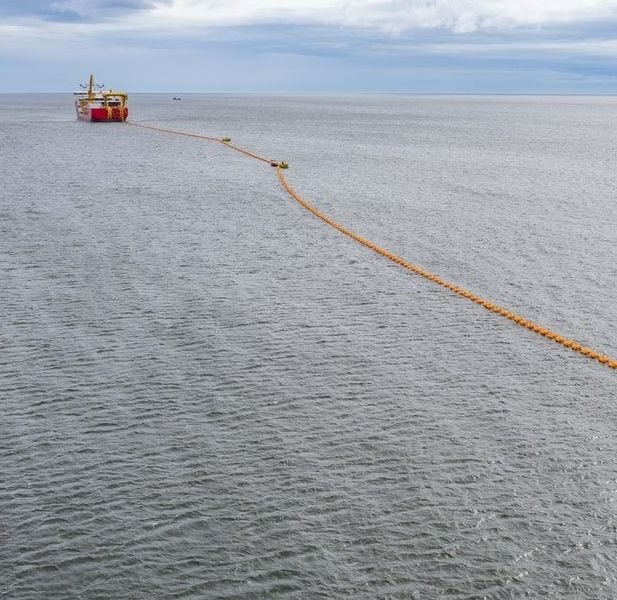The ambitious Great Sea Interconnector, designed to link Greece and Cyprus through an undersea electricity cable, is mired in geopolitical tensions and bureaucratic delays, raising questions about its future viability.
This €1.57 billion EU-funded project aims to enhance energy security, yet, the endeavor has hit major obstacles, with Ankara’s opposition and Nicosia’s hesitation at the forefront.
Last July, the Italian research vessel Ievoli Relume was forced to halt its work when Turkey deployed five warships near the Kasos-Karpathos Strait, claiming jurisdiction over contested waters. The standoff, which lasted 40 hours, highlighted the fraught relations between Athens and Ankara. Greek officials assert the surveys were completed without Turkish approval, but Ankara claims a maritime notification from the Italian ship that exploration was about to start was tantamount to seeking Turkish permission.
Complicating matters further, Nicosia has delayed its financial participation in the project. Analysts point to a strong Cypriot “solar lobby” opposing the interconnector, preferring to focus on renewable energy projects. This hesitation has frustrated the French contractor Nexans, which warns that failure to complete surveys by late 2025 would derail the timeline, potentially jeopardizing the project.
Four scenarios loom: an unlikely repeat of Turkish naval obstruction; Ankara granting limited authorization; rerouting the cable at great expense; or a provisional arrangement between Greece, Cyprus and Turkey, though the latter is fraught with political challenges.
Athens remains determined to proceed, framing the project as critical for regional energy independence. However, the ongoing geopolitical chess game risks leaving the interconnector tangled in its own Gordian knot, with high stakes for energy security and regional cooperation.
